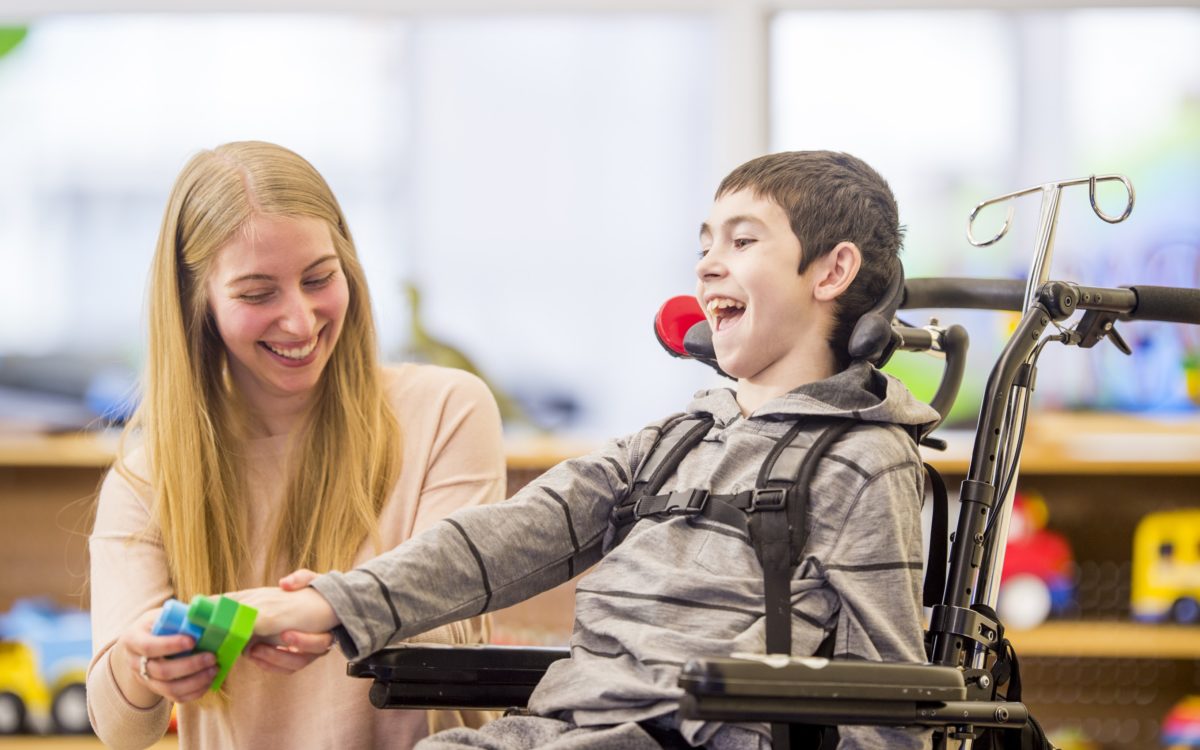A May 6 convening of the House Early Childhood, Elementary, and Secondary Education Subcommittee provided experts the opportunity to explain several steps Congress can take to help schools meet the needs of students with disabilities moving forward.
The barriers to quality education for students with disabilities only became steeper during the pandemic, subcommittee Chair Rep. Gregorio Kilili Camacho Sablan (D-Northern Mariana Islands) said during the hearing, “Addressing the Impact of COVID-19 on Students with Disabilities.”
“Schools initially struggled to maintain educational services for students with disabilities and without guidance from the Department of Education during the prior administration, some schools determined they simply could not comply with IDEA,” he explained. “However, even with the full support of their schools, students with disabilities still faced an array of challenges reflecting the broad diversity of the disabled community. We may disagree on the means, but I know each of us agrees that now more than ever, we must uphold our promise to give all students with disabilities the opportunity to reach their full potential.”
A November 2020 report from the U.S. Government Accountability Office outlined the numerous factors that complicated local educational agencies’ delivery of special education services, which, while required under federal law, are not always easily transferable to distance learning.
Students with individualized education programs are eligible for tailored, specialized education services designed to help them succeed in school. These services can range from being allowed additional time to take tests to occupational therapy to behavioral supports and more.
Rep. Julia Letlow (R-Louisiana), noted the tremendous challenges teachers and students faced during remote learning in her state, where broadband access is far from a given and many children relied on paper packets with little to no teacher interaction. Yet outcomes were not sufficient even for those with access, she said.
“Without in-person instruction there are significant losses in learning, social skills and mental health,” Letlow said. “These challenges are even greater for our students with disabilities. These students need individualized learning and care that cannot be replaced virtually.”
Recommendations as schools reopen
Rep. Robert C. “Bobby” Scott (D-Virginia), citing disproportionate exclusionary discipline among SWDs both before and during the pandemic, asked what can be done to avoid inappropriate discipline as children return to school?
Kanika Littleton, project director for Michigan Alliance for Families, said that disciplinary rates are likely to increase among all students, but particularly among those with disabilities. “Children are coming back who may have faced trauma, so I believe investment in those multi-tiered systems of support is a proactive approach for some schools to take — especially positive behavior interventions and supports when students come back,” she said. “Of course, schools will need the funding to make sure that educators and service providers have the training that is necessary for that.”
In response to questioning from Rep. Mark DeSaulnier (D-California), Littleton said funding parent training and information centers will also be critical in ensuring families are educated on the IEP process so that they can work with their school teams to get the supports needed for their child.
Ron Hager, managing attorney for Education and Employment at the National Disability Rights Network, told the committee that more students are anticipated to become eligible for services under section 504 of the Individuals with Disabilities Education Act as a result of the impacts of the pandemic on children’s learning, mental and behavioral health.
“We need to be looking at how far behind they are and make sure that they get the services that they need. It has to be individualized — it can’t be one-size-fits-all,” Hager said. Schools should implement the multi-tiered systems of support model, which will benefit all students, and consider the emotional and behavioral needs of students and anticipate how to address those needs when possible, he said.
All of this will take funding beyond what the federal government has provided as part of its stimulus packages, panelists said. Issues like the nationwide shortage of special education teachers, for instance, will require long-term investments, said Danielle M. Kovach, president-elect for the Council for Exceptional Children and third-grade special education teacher in New Jersey.
“[The American Rescue Plan] does provide flexibility to invest in educators in the short term, but I fear most districts will forego these investments without sustainable funding to prevent layoffs when the ARP funds run dry,” Kovach said. “To truly recover from the pandemic and address long-term needs — many of which predate the pandemic — Congress must fully fund IDEA.”





